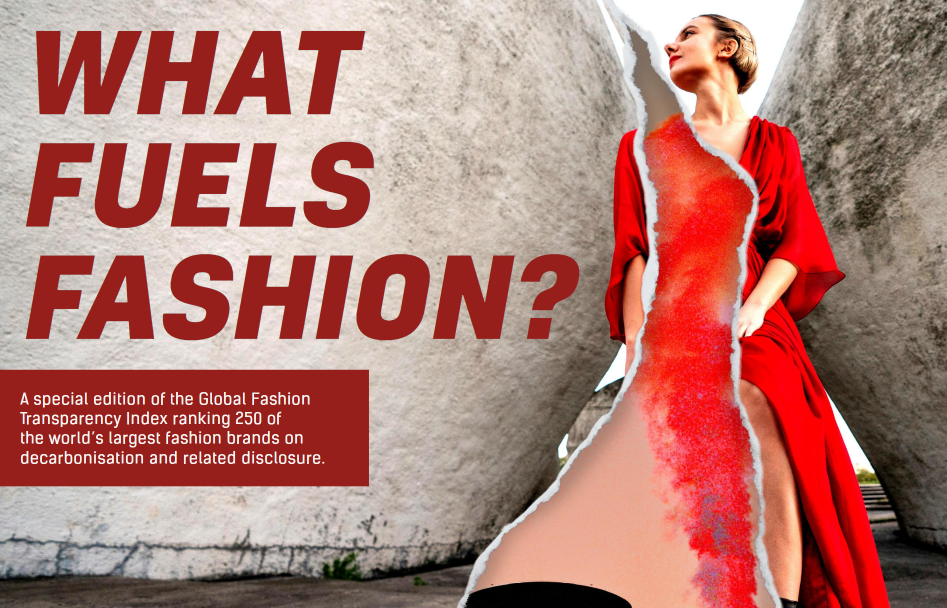Campaigners are calling on the world’s largest fashion brands to address their industry's lack of progress in decarbonising their business.
The call has been made in a report by environmental campaign group Fashion Revolution, which tracks brands’ performance in tackling climate change.
Its What Fuels Fashion report found that one in four of the 250 brands looked at “disclose nothing on decarbonisation - signifying that the climate crisis is not a priority for them”.
The proportion of brands disclosing emissions reduction targets, as verified by the Science Based Targets Initiative (SBTi), is up. But less than half (47%) are still not disclosing this information, compared to just over a third (34%) last year.
Of those with targets in place, only half are disclosing their progress.
Seven brands are even reporting increases in their Scope 1 and 2 emissions relating to direct and indirect emissions.
A “concerning” 42 brands are reporting increases in their Scope 3 emissions relating to their supply chain, which campaigners say is “the most critical areas to decarbonise”.
“Big fashion can no longer mask its lack of decarbonisation progress with vague, insufficient targets and pilot projects that fail to benefit most of the supply chain,” says Fashion Revolution’s report.
“The need for absolute systemic change is undeniable.”
It is calling for “big fashion to put their money where their emissions are” and invest “at least” 2% of their annual revenue on transitioning away from fossil fuels such as coal to renewable energy sources, like wind and solar “to power fashion’s supply chain in a clean way”.
Fashion Revolution’s report also found that almost nine in ten brands do not have a “public, time-bound and measurable” target to phase out coal.
Just four out of 250 brands are disclosing emissions reduction targets that meet “the level of ambition” being called for by the United Nations, which is a 55% absolute emissions reduction by 2030 from 2018 levels.
These four brands are ASICS, H&M, Marks & Spencer, and Patagonia.
Fashion industry action is vital to tackling climate change due to the high use of fossil fuels in the production of clothes worldwide, said the campaign group.
This includes burning coal in factories to heat water used in dyeing and printing and producing synthetic fibres.
According to the campaign group the fashion industry is set to “overshoot the 1.5C limit by 50%: doubling emissions rather than halving them as the science is crying out for”.
“It will not be possible for fashion brands to meet climate targets without publicly available, clear and credible strategies towards achieving them,” adds Fashion Revolution.
Other action being called for is producing fewer clothes, minimising the use of air freight and phasing out the use of synthetic materials derived from fossil fuels.
Latest News
-
Jewellers body offers grants of up to £50,000 to boost training
-
Agency overhauls community charity’s brand for free
-
Open University launches global majority voluntary sector leadership programme
-
OVO and Co-op’s foundations help launch youth climate justice funding scheme
-
Bus firm to invest £25m in green transport research
-
Myanmar earthquake: Co-operative bank launches emergency fundraising appeal
© 2019 Perspective Publishing Privacy & Cookies









Recent Stories